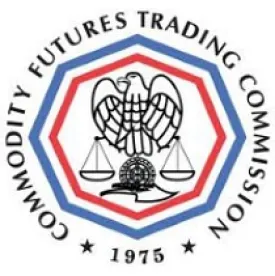The U.S. Commodity Futures Trading Commission (“CFTC”) sent a strong message to Chief Compliance Officers (“CCO”) this week when it held a CCO held accountable for lying to the National Futures Association (“NFA”) during an examination. Also, if you did not believe the CFTC’s message about its intention to reach across borders to pursue bad actors, it’s time to reconsider.
Earlier this year the CFTC instituted a civil enforcement action against Phy Capital Investments, LLC and its CEO, Fabio Bretas de Freitas. The firm was formed in 2016 and the CEO solicited participants to invest in a pool to trade commodity futures contracts. According to the CFTC, despite representing to pool participants that it made substantial commodity trading profits, the firm never engaged in any trading activity and instead misappropriated participant funds. The civil charges against the firm and the CEO included various forms of fraud as well as making misstatements and omissions to the National Futures Administration (“NFA”).
Though he was not charged in the CFTC’s civil enforcement action, the firm’s CCO was not let off the hook. In a settled administrative proceeding, the CCO agreed to resolve charges of engaging in a fraud upon customers and making misstatements to the NFA. While he previously operated out of Miami, Marconato is currently a resident of Brazil. In particular, the CFTC found that the CCO engaged in the following wrongful acts:
-
He misrepresented the purpose and nature of the firm during an NFA examination, falsely telling the examiners that the firm had no customers and was instead a private equity fund set up for investing in software;
-
In furtherance of the above misrepresentation, the CCO sent the NFA a fabricated LLC agreement that misrepresented the purpose of the firm;
-
When a participant sought to invest additional money in the pool, the CCO actually sold his own shares to the interested participant, but the CCO told the investor that the shares were instead coming from a different pool investor who had elected to sell; and
-
He twice directed a participant to transfer investment funds to a bank account that he controlled, and subsequently diverted those funds to his account.
By settling these charges, the CCO was ordered to pay $125,000 of restitution and an additional $25,000 as a civil penalty. He was also permanently barred from the commodities trading industry. Notably, these penalties take into account the “substantial cooperation” that he has already provided to the CFTC, which he must continue to provide in the CFTC’s ongoing litigation against the CEO and the firm.
While his misappropriation of client funds and direct misrepresentations to a pool participant appear to have warranted enforcement attention regardless, the CCO’s decision to try to cover for the CEO by lying to the NFA and providing them with false documents undoubtedly made the situation much worse. This case highlights the importance of candor when dealing with all regulators, including SROs. The CFTC charged the lying to the NFA under Section 9(a)(4) of the Commodity Exchange Act (7 U.S.C. § 13(a)(4)), which prohibits willfully making false statements to a futures association in furtherance of its official duties under the act. It should be noted, however, that the Securities and Exchange Commission does not have an analogous statute in its toolbox. Finally, that the CCO’s move to Brazil did not deter the CFTC from pursuing charges should serve as a reminder that the CFTC will work other agencies and its international partners to root out fraud.





 />i
/>i

